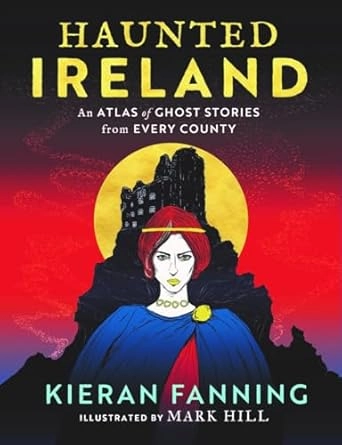Great White Sharks in Ireland? International Research Team Head to Ireland
Science/Medical/Technology
Wednesday 10th, July 2024
3 minute read.
This September (2024), a team of Irish shark scientists will collaborate with OCEARCH, a US based non-profit focused on great white shark research, to document the first official records of great white sharks in Irish waters. While Ireland is globally recognised for a variety of shark species, including the basking shark, porbeagle, and tope shark, great whites have yet to be formally recorded here. These apex predators, once common in the Mediterranean, have experienced significant population declines due to overfishing.
Confirmed sightings of great whites have been recorded as far north as the Bay of Biscay. However, reports from Ireland and the UK remain anecdotal, including a recent claim of a sighting off the Galway coast, which experts now believe was not filmed in Irish waters.
Dr Nick Payne, Assistant Professor in Trinity College Dublin’s School of Natural Sciences, is leading the Irish expedition. He expressed optimism about the team's chances, stating, “Those of us that study great whites in other parts of the world have had our eyes on Ireland as a likely location that the species may occasionally visit. The temperature and food options for them are ideal, so we think it’s just a matter of time before we find one here. It’s exciting to have some of the world’s best great white researchers visiting Ireland to search for these amazing animals, and it’s also a brilliant opportunity to highlight all the other incredible sharks we have in our waters, as well as some of the threats they face”.
The Irish team includes researchers from Trinity College Dublin, University College Dublin, University College Cork, Munster Technological University, the Irish Whale and Dolphin Group, the Marine Institute, and Fair Seas. In addition to the search for great whites, the team will conduct a range of research on other shark and ray species of conservation concern.
Dr Harley Newton, OCEARCH Chief Scientist & Veterinarian, emphasised the importance of healthy shark populations, saying, “Sharks are keystone species in marine ecosystems. As top predators in the food web they regulate prey populations and through that shape the diversity, abundance, and distribution of other species. This abundance and diversity is key to the health of marine habitats as well as human livelihoods. This expedition is an exciting opportunity to contribute knowledge on Ireland’s shark populations and why we need them”.
Approximately 40 shark species inhabit Irish waters, but many face significant threats and are classified as Endangered, Critically Endangered, or Vulnerable. While few sharks are intentionally captured for consumption in Ireland, they are often killed incidentally as by-catch in other fisheries. They also face challenges from habitat destruction and climate change. Given their slow growth and low reproductive rates, sharks are particularly vulnerable.
Dr Payne highlighted the importance of conservation efforts, stating, “The Irish Government has a number of obligations for conservation of local shark populations, but effective management requires good understanding of what’s out there and how things are changing. While I’m obviously excited about the prospect of seeing a great white this September, I’m also excited about bringing together this great group of shark scientists to work together on learning more about Irish shark populations and on plans to help conserve them for the future”.
This pioneering expedition not only aims to uncover the presence of great whites in Irish waters but also seeks to advance the broader understanding and conservation of Ireland's diverse shark populations.
Confirmed sightings of great whites have been recorded as far north as the Bay of Biscay. However, reports from Ireland and the UK remain anecdotal, including a recent claim of a sighting off the Galway coast, which experts now believe was not filmed in Irish waters.
Dr Nick Payne, Assistant Professor in Trinity College Dublin’s School of Natural Sciences, is leading the Irish expedition. He expressed optimism about the team's chances, stating, “Those of us that study great whites in other parts of the world have had our eyes on Ireland as a likely location that the species may occasionally visit. The temperature and food options for them are ideal, so we think it’s just a matter of time before we find one here. It’s exciting to have some of the world’s best great white researchers visiting Ireland to search for these amazing animals, and it’s also a brilliant opportunity to highlight all the other incredible sharks we have in our waters, as well as some of the threats they face”.
The Irish team includes researchers from Trinity College Dublin, University College Dublin, University College Cork, Munster Technological University, the Irish Whale and Dolphin Group, the Marine Institute, and Fair Seas. In addition to the search for great whites, the team will conduct a range of research on other shark and ray species of conservation concern.
Dr Harley Newton, OCEARCH Chief Scientist & Veterinarian, emphasised the importance of healthy shark populations, saying, “Sharks are keystone species in marine ecosystems. As top predators in the food web they regulate prey populations and through that shape the diversity, abundance, and distribution of other species. This abundance and diversity is key to the health of marine habitats as well as human livelihoods. This expedition is an exciting opportunity to contribute knowledge on Ireland’s shark populations and why we need them”.
Approximately 40 shark species inhabit Irish waters, but many face significant threats and are classified as Endangered, Critically Endangered, or Vulnerable. While few sharks are intentionally captured for consumption in Ireland, they are often killed incidentally as by-catch in other fisheries. They also face challenges from habitat destruction and climate change. Given their slow growth and low reproductive rates, sharks are particularly vulnerable.
Dr Payne highlighted the importance of conservation efforts, stating, “The Irish Government has a number of obligations for conservation of local shark populations, but effective management requires good understanding of what’s out there and how things are changing. While I’m obviously excited about the prospect of seeing a great white this September, I’m also excited about bringing together this great group of shark scientists to work together on learning more about Irish shark populations and on plans to help conserve them for the future”.
This pioneering expedition not only aims to uncover the presence of great whites in Irish waters but also seeks to advance the broader understanding and conservation of Ireland's diverse shark populations.



